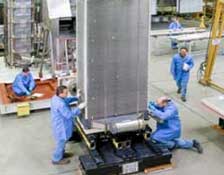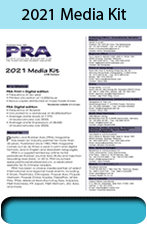Carbon capture: Celanese expands methanol capacity with recycled CO2; ExxonMobil proposes carbon storage in Texas

US chemical firm Celanese Corporation says that its Clear Lake, Texas, integrated chemical manufacturing facility will begin utilising recycled carbon dioxide (CO2) as an alternative feedstock in the production of methanol, a key raw material in the manufacture of numerous acetyls products, including acetic acid, vinyl acetate monomer (VAM), ethyl acetate and other derivatives.
This carbon capture and reuse process is expected to produce sustainable methanol with a high capital efficiency at competitive pricing via an expansion of the company’s Fairway joint venture. The methanol production unit at the Clear Lake facility, operated as Fairway Methanol LLC, is a manufacturing joint venture between Celanese and Mitsui & Co., Ltd., and will contribute to the sustainability targets of both companies.
Once fully operational, it is expected that by using by-product CO2 in the production of methanol, after a low capital capacity expansion, the 1.62 million-tonne Fairway production unit will eliminate the waste equivalent of approximately 39,000 automobiles/year from US highways, thereby displacing approximately 180,000 tonnes of CO2. Furthermore, an estimated 60% of currently vented process CO2 from the entire Clear Lake site will be transformed into sustainable methanol.
CO2 capture and reuse further demonstrates the company’s commitment to sustainability and the potential impact to the broader Celanese portfolio as the company is both a consumer of upstream products and a supplier of sustainable materials to other products within the portfolio. As such, the benefits of CO2 capture and reuse can be allocated or derivatised to the company’s engineered materials, acetyl chain or acetate tow product offerings, it adds.

Meanwhile, US compatriot petrochemical firm ExxonMobil has put forward a proposal for a public/private carbon capture and storage (CCS) project aimed at collecting carbon dioxide emissions from US petrochemical plants and burying them in reservoirs under the Gulf of Mexico.
It plans investments of US$3 billion on lower-emission energy solutions through 2025, adding to the more than US$10 billion ExxonMobil has invested since 2000. It would also require billions of dollars from companies and government agencies to store 100 million tonnes of CO2 a year by 2040, said Joe Blommaert, President of Exxon’s Low Carbon Solutions business. He added that this equates to taking 1 in every 12 cars off the road in the US and seven times the current carbon capture in the country.
Blommaert outlined the plan in a blog post. “We’ve been studying the concept of multi-user CCS zones in major industrial areas that are located near safe geologic storage sites. We believe the Houston Ship Channel is ideally suited for a CCS project of this magnitude, and ExxonMobil is well-placed to help lead this challenging, complex project.”
The project proposed for the Houston Ship Channel, home to dozens of refineries and chemical plants, faces enormous hurdles, including financing and support from federal, state and local government agencies. It comes as Exxon faces shareholder opposition to its goal of increasing fossil fuel production in coming years that would greatly expand its carbon emissions.
Houston was chosen because it has a large concentration of “hard-to-decarbonise” industry near the Gulf, said Blommaert.
“We could create an economy of scale where we can reduce the cost of the carbon dioxide mitigation, create jobs and reduce the emissions,” he said.
(PRA)
Subscribe to Get the Latest Updates from PRA Please click here
©2021 Plastics and Rubber Asia. All rights reserved.

©2020 Plastics and Rubber Asia. All rights reserved.
Home Terms & Conditions Privacy Policy Webmail Site Map About Us















